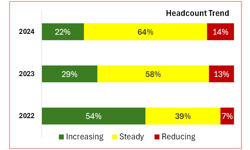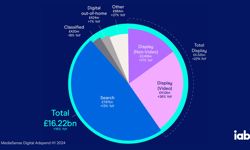
2019 offered us a taste of several digital trends poised to have a more significant impact on publisher business and strategy in 2020. Here are three that we are watching closely.
1. More Personalisation through AI.
Publishers are continuing to explore the potential of AI, but we have yet to see widespread adoption of the technology in the industry. This is beginning to change as publishers look to capitalise on personalisation to increase audience engagement, grow readership, and boost ad revenue.
Some areas where we think AI will take off for publishers in 2020 include:
- Content categorisation that makes content more easily searchable and sortable.
- Data-driven personalisation that increases reader engagement by monitoring reader behaviour and suggesting relevant content.
- AI-driven, themed special editions that allow publishers to give archived content new life, providing new monetisation opportunities and bringing value to readers.
2. Audience Growth through Newsletter Campaigns.
One logical next step for personalisation is the delivery of personalised email newsletters. Email newsletters provide publishers with another reader touchpoint and an opportunity to increase engagement, improve content relevance, and convert readers into subscribers by sharing personalised selections of news, analysis and features.
Some of the larger publishers are already using newsletter strategies to reach and grow their audience. The New York Times’s email newsletters, personalised for the reader based upon past reading behaviour, function as marketing tools for developing one-to-one relationships with readers. The media company, which offers more than 65 newsletters, found that readers who subscribe to the Times’s free newsletters are twice as likely to become paying subscribers.
3. More Effort Meeting Privacy and Other Regulations.
Of course, the flip side to tracking content engagement and creating personalised reading experiences is privacy. With GDPR, California’s new CCPA, and a slew of other privacy regulation on the global horizon, publishers will have to be focused on making changes to how they collect and use reader data. But there is a silver lining. Publishers have unique relationships with their readers and that puts them in an excellent position to change their data gathering techniques by shifting to first-party data collection.
We are also seeing growing publisher attention on other compliance initiatives like providing accessible content to disabled readers, such as the visually impaired. The good news for digital publishers is that the Web Content Accessibility Guidelines (WCAG) is setting the standard on how to make web and digital edition content as inclusive as possible by making it accessible to all users on the internet.
Overall, it will be exciting to see how the digital publishing industry embraces the opportunities in front of it in 2020, including strategies for AI adoption, audience growth, and regulatory compliance.
Readers who subscribe to the Times’s free newsletters are twice as likely to become paying subscribers.

About us
For more than a decade, BlueToad has been the digital content partner of choice for thousands of publishers across the globe to create and monetise beautifully responsive digital editions and web content. With an office in London, BlueToad is now focused on providing its GDPR compliant and award-winning solution to publishers in Europe, offering mobile editions, responsive web content, and audio publications.
020 8068 5546
This article was first published in the Publishing Partners Guide 2020, which was distributed with the January / February issue of InPublishing magazine.










